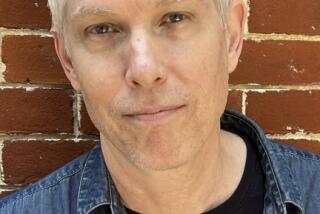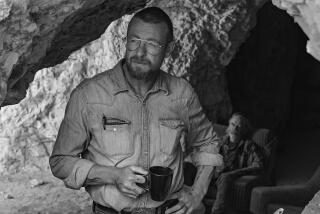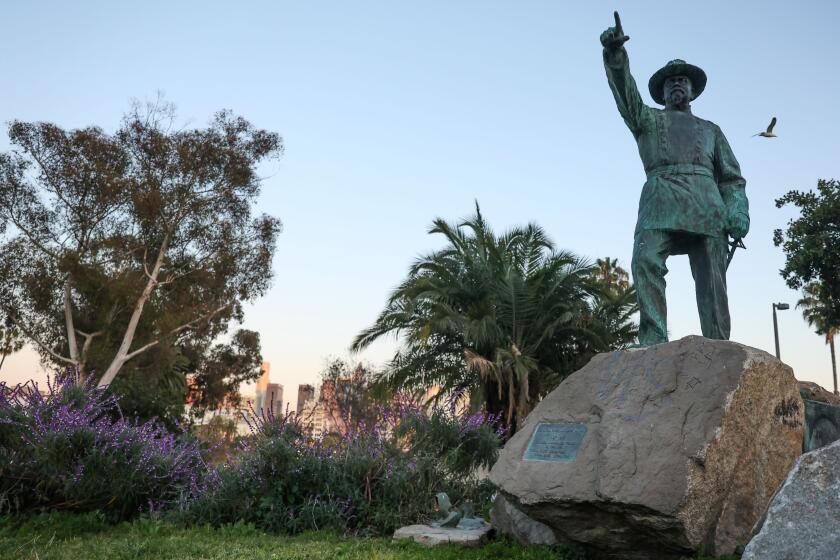‘Rain Gods’ by James Lee Burke
After getting the lay of the literary land in James Lee Burke’s new Texas-based crime novel, I was reminded of a friend mentioning -- with film-buff certainty -- that Howard Hawks’ classic western “Red River” was in fact an uncredited reworking of the sea adventure “Mutiny on the Bounty.” In spite of certain plot similarities, I was not then, nor am I now, at all convinced.
Nor do I think that Burke’s “Rain Gods” is a reworking of Cormac McCarthy’s “No Country for Old Men.” Still, there are enough similarities of characters and story to suggest that the author, subconsciously one assumes, has put his own poetic and very different philosophic spin on that celebrated leaner slice of Texas noir.
It is not merely that both fictions are contemporary western elaborations on the eternal fight of good versus evil. In McCarthy’s 2005 novel, set in the early 1980s, protagonist Ed Tom Bell’s long stretch as a small-town sheriff was his penance for a perceived failure in courage during World War II. Sheriff Hack Holland, “Rain Gods’ ” heroic old man, has lived his life trying to atone for what he believes to be a fall from grace in a Korean War POW camp. (More on that may be found in Burke’s 1971 novel that introduced Holland, “Lay Down My Sword and Shield,” set to be reissued next year.)
Both lawmen face multiple murders symbolizing an uptick in inhumanity. For Bell, it’s a drug deal gone sour, leaving six human corpses and a dead dog. Holland’s victims are nine Asian females, some, he notes, “hardly more than children,” on their way to serve in bordellos this side of the border.
In each novel, the mass murders unleash a monstrous killing force. McCarthy’s is the enigmatic and affectless hit man Chigurh. Burke opts for the considerably more complex Jack Collins, a.k.a. Preacher, proud to be considered “one notch below the scourge of God,” governed by Oedipal guilt mixed with an addled belief in his own biblical destiny. Just as Chigurh relies on a unique weapon, a pneumatic air gun that punches a hole in its victim’s head, Preacher employs a version of the old time Thompson submachine gun, capable of cutting a man, or a whole roomful of men, in two.
Each sheriff is racing against his devil to save the life and perhaps soul of a young war vet. “No Country’s” Llewelyn Moss, late of Vietnam, stumbles upon the drug massacre and foolishly removes a satchel containing $2 million, endangering not only himself but his young wife. “Rain Gods’ ” Pete Flores is one of Burke’s burning angels, a scarred victim of the Iraq war who is present at the murder of the Asian women and escapes, bringing down Preacher’s wrath not only on himself but on his girlfriend, whose survival skills and intelligence are considerably superior to his.
That’s one point of divergence. While McCarthy’s women are subservient and victimized, Burke’s are tough and nobody’s fools. In addition to Pete’s intended, Vikki Gaddis, there’s Sheriff Holland’s tough, tender and deadly deputy, Pam Tibbs, and Esther Dolan, who proves to be even more Old Testament than Preacher.
There are other differences. Those who favor lyrical optimism over bleak fundamentalism will give Burke’s novel the edge. “Rain Gods” also offers a genuinely heroic protagonist who is too ornery to just philosophize while bad things happen to reasonably good people.
On the downside, instead of McCarthy’s hardscrabble, straightforward story line, Burke allows his narrative to meander, with too many secondary characters and elaborate back stories that do little to advance the plot.
Still, it is the author’s flourishes that delight, not to mention his belief in honor and self-determination. Near the end, the narrator explains the “key to understanding” the book’s heroes: “Their humility, the disparity in their backgrounds, the courage they didn’t acknowledge in themselves, the choices they made out of instinct rather than intellect, these characteristics constituted the glue that held them together as individuals and as people. Empires came and went. The indomitable nature of the human spirit did not.”
No country for old men? Burke is telling us that depends on the old man.
Lochte is the author of 10 novels, including the comedy-thriller “Croaked!”
More to Read
The biggest entertainment stories
Get our big stories about Hollywood, film, television, music, arts, culture and more right in your inbox as soon as they publish.
You may occasionally receive promotional content from the Los Angeles Times.






